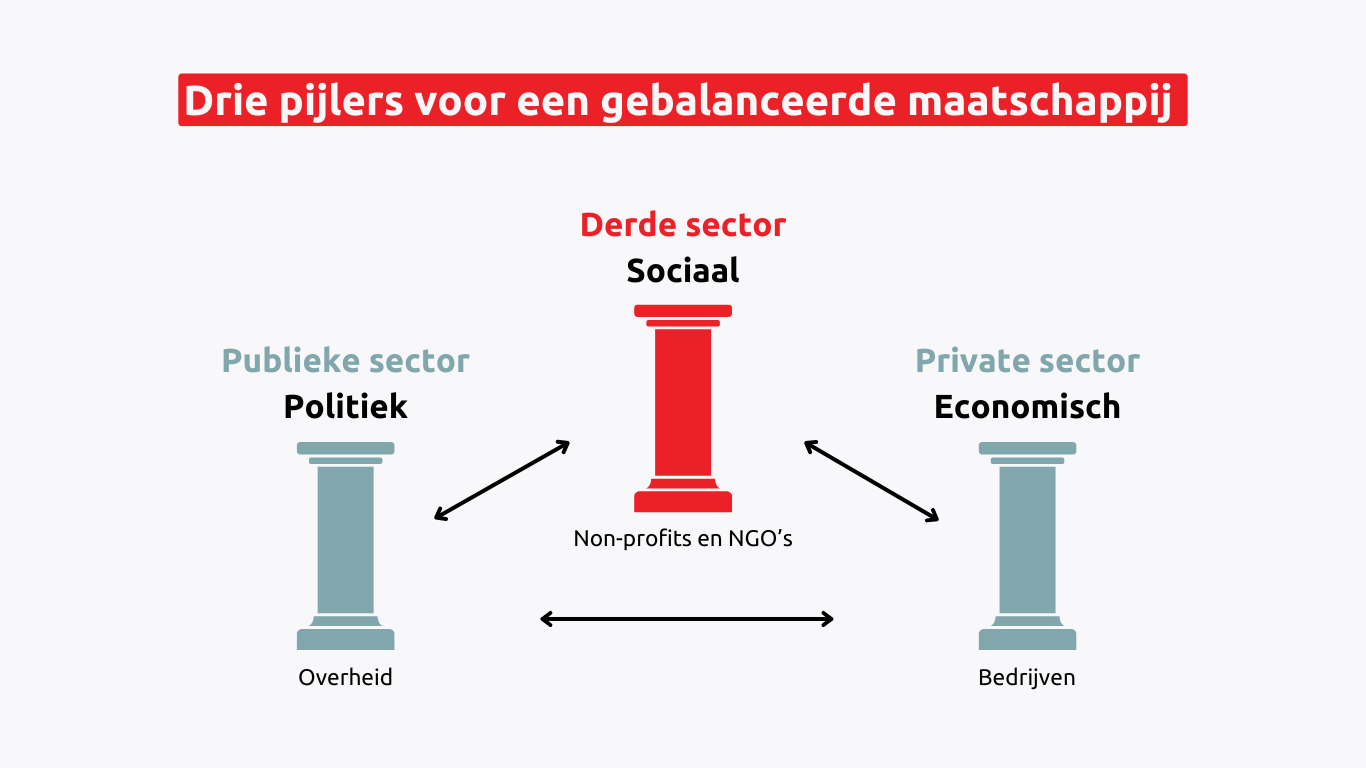Helping better thanks to research
For more than 150 years, we have managed to reinvent and improve ourselves over and over again. We can only do this by continuously questioning ourselves. Because little independent and high-quality research has been conducted on our activities worldwide, we are strongly committed to research and innovation ourselves. This allows us to provide better and more efficient assistance.
Because there has been little independent and quality research on our activities worldwide, we are strongly committed to research and innovation ourselves. This enables us to provide ever better and more efficient assistance.
Dr. Philippe Vandekerckhove
Chief executive officer, CEO Belgian Red Cross-Flanders
Proven effective approach
We are engaged daily in researching and scientifically substantiating the techniques and practices of our activities. Thus, we do not simply build on tradition, intuition or good will, but strive for proven effective approaches in everything we do.
Research helps us move forward
- We want to critically evaluate our operations. We make adjustments where we can, including activities that have been little explored.
- We want to help as efficiently as possible. We want to use our available resources optimally for maximum results. This is how we become even more performant.
- We want to constantly improve our operation. We immediately put innovative insights into practice. Participating in this is extra motivating for our employees and volunteers.
Five key areas
We conduct research for all our activities, but we pay extra attention to five research areas: in each of these areas we strive to be seen as an expert worldwide. Given that Belgian Red Cross-Flanders can never match other aid organizations such as the German or American Red Cross in terms of (scale) size, this strategy allows us to nevertheless have global impact.
For our blood activities, we do research primarily in the areas of platelets and blood, plasma and platelet donors. For our other areas, we focus on first aid education and hygiene promotion, and first aid and disaster preparedness.
Belgian Red Cross-Flanders is now considered the reference in terms of evidence-based first aid guidelines and scientific research on platelets. It also recently launched Centre for Research on the Third Sector, which conducts scientific research on the importance of volunteering and social profit organizations for a functioning society.
These various initiatives, always based on scientific research, translated over the years into the slogan of Belgian Red Cross-Flanders "logical not ideological," which fits seamlessly with the basic principle of neutrality within the Red Cross movement. The most vulnerable people at home and abroad are thus helped in a quality and efficient manner by Belgian Red Cross-Flanders.
Our research centres
At Belgian Red Cross-Flanders , we have several research centres that each have their own focus and methodology. We list them briefly.
Centre for Evidence-Based Practice
Providing quality assistance is very important to us. Thanks to our Centre for Evidence-Based Practice (CEBaP), we can scientifically underpin all our activities. This ensures effective and efficient assistance in everything we do, from providing blood to emergency relief.
CEBaP focuses primarily on four of the five topics of our research strategy:
- platelets
- blood, plasma and platelet donors
- first aid instruction and hygiene promotion
- first aid and disaster preparedness
What is Evidence-Based Practice?
Evidence-Based Practice (EBP) involves formulating recommendations based on the best available scientific evidence, supplemented by the preferences and interests of the target population involved, as well as the advice and experience of specialists. It is diametrically opposed to making decisions out of habit or based on intuition.
Conducting research and evidence-based work are part of Belgian Red Cross-Flanders 's five-year strategy (RKV). Within RKV, CEBaP is responsible for collecting, reviewing and summarizing the available scientific literature. To then test this scientific evidence (with low or high certainty) against the preferences and interests of the target population, the expertise of the various operational departments of CRD is called upon. Finally, the experience and advice of external experts are included during so-called expert meetings. Together, these three pillars form the basis for EBP. In this way, we can formulate well-founded answers to questions put to us by the services or from outside.
Read more about (the importance of) evidence-based work within Belgian Red Cross-Flanders
More efficient and effective assistance
We permanently apply the principles of Evidence-Based Practice within our operation. This enables us to optimize our assistance and make it ever more efficient and effective. In our research, we are committed to knowledge development and knowledge dissemination.
Developing knowledge
Our Center develops evidence-based guidelines that are updated every 5 years. In addition, through "systematic reviews," we bring together a review of all scientific studies relevant to answering a specific question. If we identify a lack of scientific evidence somewhere, we also conduct primary research.
View all publications by CEBaP
Spreading knowledge
We disseminate our knowledge both nationally and internationally through publications in professional journals, participation in conferences and presentations at meetings and events. In addition, we have developed an e-learning module and conduct an annual "Evidence-Based Practice" workshop to teach staff from various departments at Belgian Red Cross-Flanders to deal critically with information and teach the basic principles of Evidence-Based Practice. This e-learning is also available to the general public and can be found here.
Core values of CEBaP
With our Centre for Evidence-Based Practice we want to support the policy-making of Belgian Red Cross-Flanders . We want to bridge the gap between science and practice, with an eye for the interests of the target group. We always inform objectively and transparently about our research and work according to strict methodological standards.
Transfusion Research Centre
Throughout Flanders and Brussels, we collect blood and supply hospitals with safe blood products. We strive to provide optimal service. We can guarantee this by conducting research into the storage, quality, processing and safety of blood products. To this end, we take a critical and independent look at the scientific dilemmas in transfusion medicine. Thanks in part to our research, we can help patients even better.
Research on blood products
Our Transfusion Research Centre (TReC) investigates biological, biochemical and biomedical questions about the collection, preparation, preservation, function and quality of blood products. For this purpose, we are equipped with a brand new modern laboratory that can examine blood cells and proteins at the molecular level. We publish the research results in authoritative international journals. Our translational scientific research contributes to the improvement of transfusion medicine.
TReC focuses primarily on the platelet pillar of our research strategy. Why. There are still many unsolved questions around platelets: Why can't they be refrigerated or frozen? Why, unlike blood plasma and red blood cells, do they no longer function properly after 5 days of storage? What biochemical processes underlie this rapid "aging"? What new techniques can we incorporate into platelet preservation?
Therefore, our team of scientists focuses mainly on platelets, their function and their role in the treatment of bleeding.
Development and sale of platelet lysate (hPL)
Research was conducted within TReC to develop platelet lysate (or Human Platelet Lysate, hPL) from platelet concentrates. hPL contains a rich mix of growth factors, cytokines and other bioactive molecules that stimulate cell growth, regeneration and tissue repair. This makes it therefore ideally suited as a xeno-free supplement for (stem) cell culture in cell therapy production, among others. The development of our hPL allows the Belgian Red Cross-Flanders to make optimal use of all donations, thereby making an additional contribution to improved patient care. The research results made it possible to determine an optimal preparation procedure of hPL. In collaboration with the Transfusion Innovation Centre (TInC), the research was translated into a product that will be made available to interested parties. Interested in testing? You can request the hPL on this page.
Centre for Research on the Third Sector
Mintzberg (2015) defined the "third sector" as "any association of people that is neither public nor private - neither owned by the state nor by private investors. Some are owned by their members; others are owned by no one." In other words, the third sector encompasses much of society, including members of non-profits and non-governmental organizations and volunteers. Existing discussions focus on a more dominant role of government (public sector) and a more dominant role of markets (private sector), while the third sector remains an undiscussed topic.
Third sector research
The Centre for Research on the Third Sector (CeRTS) at Belgian Red Cross-Flanders contributes to the development of empirical research on the third sector, focusing on quantitative methodologies. The focus of The research centre's is to examine the "importance of volunteering and social profit organizations. In particular, CeRTS uses publicly available datasets (e.g., Eurostat and World Bank Data Catalog) that empirically test the theory that a larger third sector is associated with better social outcomes. The research centre's has expertise in basic research, including literature review, data extraction, synthesis and analysis, and publishes articles in international, peer-reviewed journals.
Featured Projects
Social volunteering and COVID-19 mortality in high-income countries: a cross-sectional study
This study aims to quantify the relationship between social volunteering and the impact of COVID-19 in that society in a cross-sectional study. Data on community volunteering were collected for 32 high-income countries (international analysis) and 50 U.S. states (U.S. analysis). Regression analysis was used to compare the ability of this variable to explain COVID-19 mortality with other variables put forward in the public debate (e.g., vaccination coverage, obesity or age). COVID-19 mortality was measured as the number of deaths from COVID-19 per million population, from January 2020 to January 2022. Social volunteerism explained 43% (resp. 34%) of the observed variation in COVID-19 mortality (R²) in the international (resp. U.S. states) analysis. Compared with other variables, social volunteering better explained variation in COVID-19 mortality between US countries and states, with only smoking prevalence showing higher R² in the international analysis. Countries and states with more social volunteering were less affected by COVID-19 even after accounting for differences in demographics, gross domestic product, health care investment and vaccination coverage. Although this evidence is not causal, our findings suggest that factors outside the public-private debate may influence the impact of COVID-19 on health care.
Measuring the size of the 'third sector': a global dataset
This article aims to facilitate research on the relevance of the third sector by constructing the first global dataset with estimates for 120 countries. Our findings show that the size of the third pillar is substantial, measured both as Third Pillar Time (TPT) or Third Pillar Participation (TPP) time. TPT is equivalent to 5.1% of total employment, more than half of the global agricultural sector. Moreover, our findings indicate that TPP equals 13.4%, suggesting that more than 1 in 8 of the world's adult population is actively volunteering in the third sector.
View all publications by CeRTS
Wondering how each country scores?
In addition to research initiated by our research centres, there are a number of services that are engaged in research. The most prominent is our Blood Service where we focus primarily on the pillar of "blood, plasma and platelet donors.




